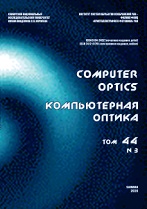|
This article is cited in 2 scientific papers (total in 2 papers)
NUMERICAL METHODS AND DATA ANALYSIS
Reducing computational costs in deep learning on almost linearly separable training data
I. M. Kulikovskikhabc
a Samara National Research University, 443086, Russia, Samara, Moskovskoe Shosse 34
b Rudjer Boskovic Institute, 10000, Croatia, Zagreb, Bijenicka cesta 54
c Faculty of Electrical Engineering and Computing, University of Zagreb,
10000, Croatia, Zagreb, Unska 3
Abstract:
Previous research in deep learning indicates that iterations of the gradient descent, over separable data converge toward the L2 maximum margin solution. Even in the absence of explicit regularization, the decision boundary still changes even if the classification error on training is equal to zero. This feature of the so-called “implicit regularization” allows gradient methods to use more aggressive learning rates that result in substantial computational savings. However, even if the gradient descent method generalizes well, going toward the optimal solution, the rate of convergence to this solution is much slower than the rate of convergence of a loss function itself with a fixed step size. The present study puts forward the generalized logistic loss function that involves the optimization of hyperparameters, which results in a faster convergence rate while keeping the same regret bound as the gradient descent method. The results of computational experiments on MNIST and Fashion MNIST benchmark datasets for image classification proved the viability of the proposed approach to reducing computational costs and outlined directions for future research.
Keywords:
implicit regularization, gradient method, convergence rate, linear separability, image classification.
Received: 13.10.2019
Accepted: 13.12.2019
Citation:
I. M. Kulikovskikh, “Reducing computational costs in deep learning on almost linearly separable training data”, Computer Optics, 44:2 (2020), 282–289
Linking options:
https://www.mathnet.ru/eng/co791 https://www.mathnet.ru/eng/co/v44/i2/p282
|

| Statistics & downloads: |
| Abstract page: | 141 | | Full-text PDF : | 39 | | References: | 16 |
|




 Contact us:
Contact us: Terms of Use
Terms of Use
 Registration to the website
Registration to the website Logotypes
Logotypes







 Citation in format
Citation in format 
